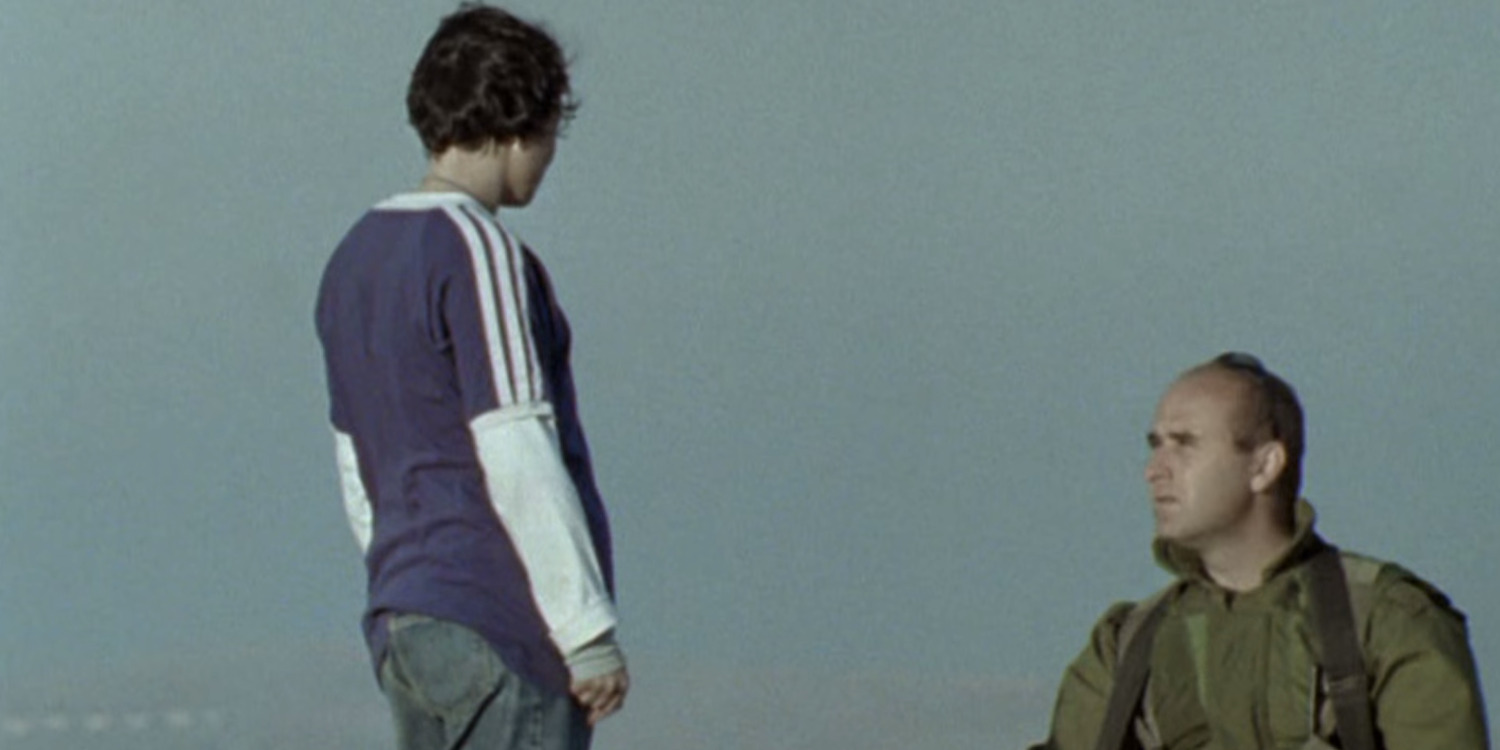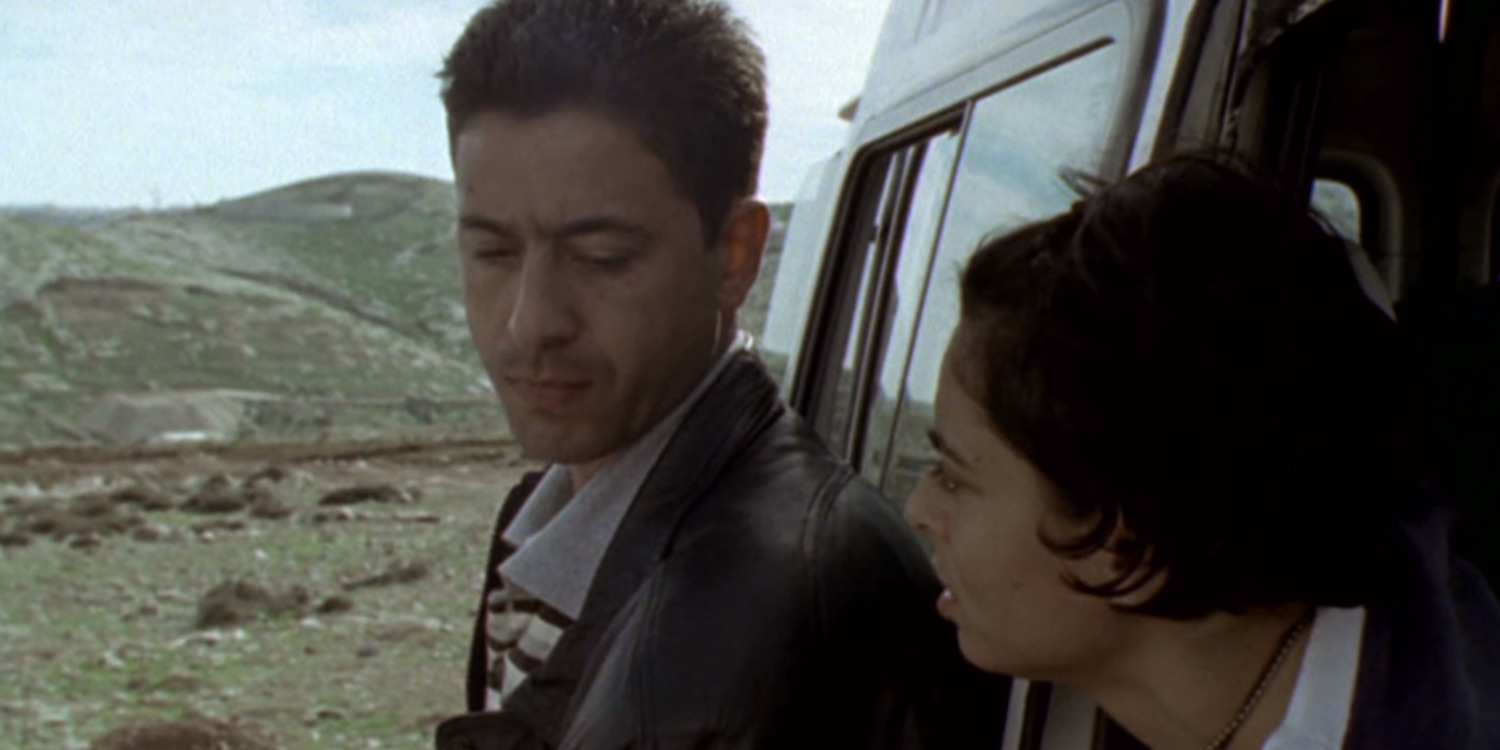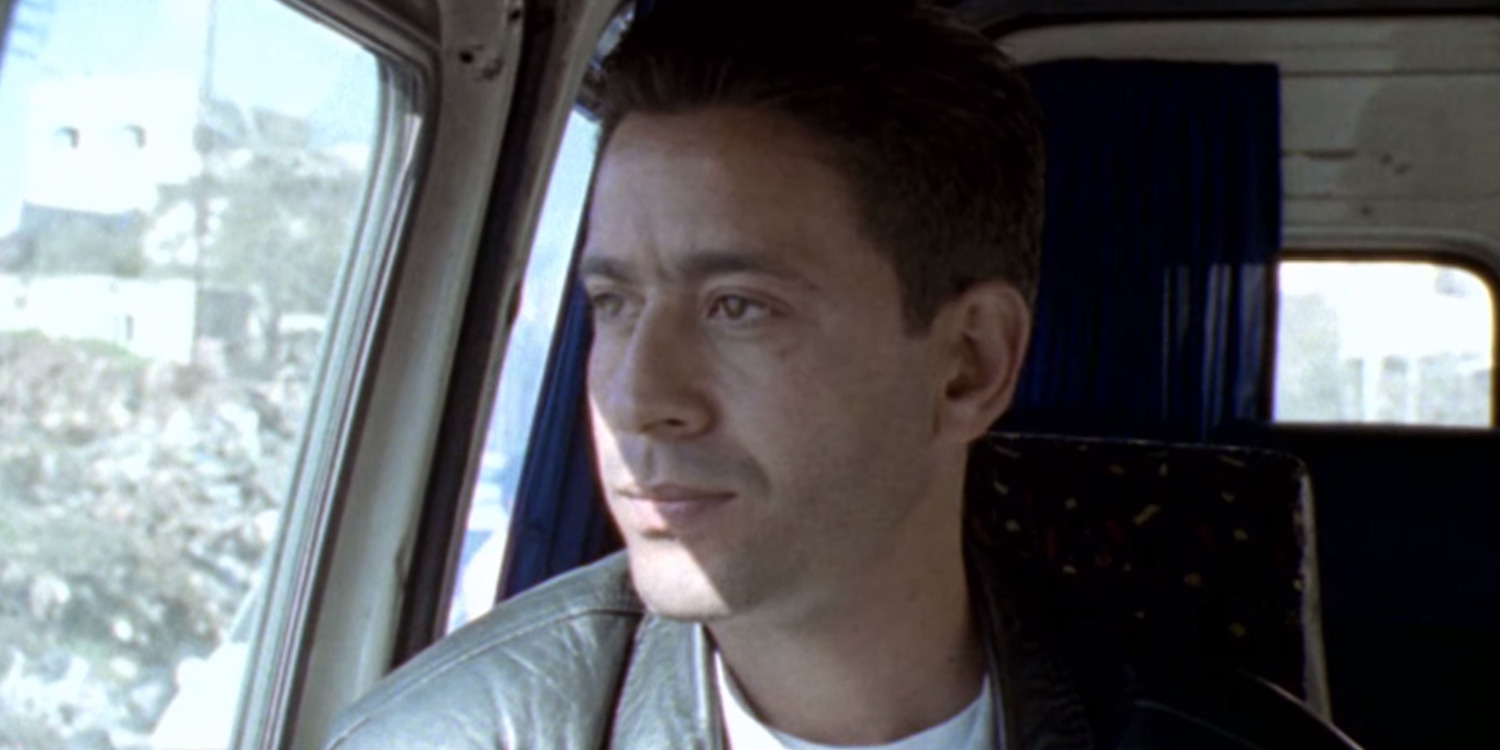Annemarie Jacir’s award-winning Arabic short film, ‘Like Twenty Impossibles,’ has garnered incredible critical acclaim since its 2003 release at the Cannes Film Festival. The independent film, shot in the style of a documentary in occupied Palestinian territory, follows a small film crew attempting to make their way to Jerusalem for their upcoming project. However, the crew, led by the American-Palestinian director, Anne-Marie, ran into some trouble due to the Israeli military checkpoints. As their story progresses, the crew faces more complications in their filmmaking endeavor due to the area’s tense geo-political environment. In its seventeen-minute runtime, the film manages to emulate a narrative that conveys significant social commentary while providing invaluable insight into the impact of Israeli checkpoints in the early 2000s. SPOILERS AHEAD!
Like Twenty Impossibles is a Fictional Story About Real-Life Issues
Even though ‘Like Twenty Impossibles’ is shot as a documentary, the film is not based on a true story. Instead, it is a fictionalized account of a Palestinian independent filmmaking crew who encounter a tumultuous roadblock in their journey and capture parts of it on film. As such, authentic characters in comfortable elements occupy the story’s narrative. Similarly, their experiences in trying to cross a checkpoint to get to Jerusalem paint a vivid and realistic image.

In the film, we can see crowds of people waiting their turn to showcase their IDs and gain access to parts of the West Bank. From families to solo travelers, different people from different walks of life culminate at the checkpoint, facing a collective issue. Furthermore, the checkpoint eventually closes its services without any prior notice. Thus halting people to a stop or diverting them to seek alternate solutions, a reality that Anne-Marie’s film crew ends up falling victim to.
The early 2000s saw similar— and worse— realities unfolding across the West Bank, where Israel set up checkpoints that adversely influenced Palestinians. To take an example of a higher magnitude, 2003 saw the death of more than 90 million people in the span of three years, according to The Palestinian Health Ministry. The deaths were directly related to the waiting process at these checkpoints, where, in some instances, pregnant women even gave birth in ambulances. Similarly, heart attacks and deaths where victims suffered major blood loss also occurred.
Since the film is shot in Palestinian territory as it remains occupied, the story possesses an irrefutable sense of realism. Filmmaker Jacir, who shot ‘Like Twenty Impossibles’ in the local area with a mostly locally sourced crew, captured the reality of the area’s harsh geo-political time by immersing her film in the same. When speaking about her experience during the shoot, the director said, “It was crazy. It was such a violent time, and I remember being caught in the middle of some really terrifying moments where I really feared for my life.”
The Characters Behind Like Twenty Impossibles
Much like the film’s narrative, the characters, Anne-Marie and Rami, are also fictitious, with a real-life influence behind them. While Rami’s character has a less obvious connection to reality, the similarities between Anne-Marie in ‘Like Twenty Impossibles’ and the real-life director behind the film remain noticeable. From their names to their profession, both people share kindred traits, rendering Anne-Marie an unofficial autobiographical self-insert.

Nevertheless, the characters mine authenticity from their realistic stories and settings. For the most part, Jacir prefers telling fictional stories since, to her, the same can have a tendency to be closer to reality than actual documentaries at times. “Cinema defends life,” said the director, divulging her ideas on cinema she shares with Miguel Littin, the Chilean filmmaker. “And for me, that’s what the role of art is, and Palestinian art is no different. Cinema defends life and seeks to express an experience and a truth.”
Therefore, in this film, the narrative combines aspects of real life conveyed through characters like Anne-Marie and Rami. In particular, their stories express the difficulties faced by young, independent Palestinian filmmakers. Yet, Jacir has also spoken about her desire to make films that surpass the same. Thus, even in her short film, the director strived to tell a story about real-life Palestinian experiences without demanding an all-encompassing representation of it.
“I don’t want to represent Palestine or Palestinians. I want to tell stories that I feel are real stories that are really interesting to me, that are complicated and aren’t just black and white,” said Jacir. Ultimately, Anne-Marie and Rami share their fictional nature with the overall film while also showcasing an aspect of real life.
Read More: Born in Gaza: Where Are They Now?


You must be logged in to post a comment.